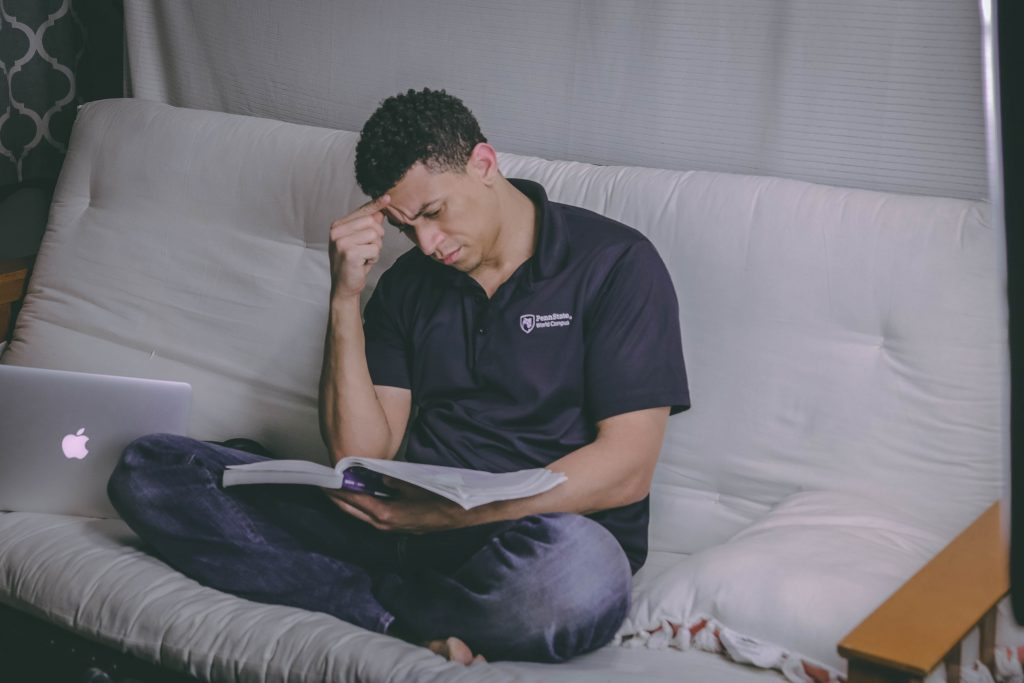Understanding Your I-20 and F1 Visa
Schools like LASC are certified by the Student and Exchange Visitor Program (SEVP) under the authority of United States Department of Homeland Security to issue a Form I-20 document. This document contains information about a student’s F visa or M visa status. The document also includes a tracking number, known as a SEVIS ID number and a school code. It is a “Certificate of Eligibility for Non-immigrant Student Status—For Academic and Language Students.”
How do I get an I-20?
To get a Form I-20, you should apply to an SEVP-certified school. These include language schools (or ESL schools), colleges, universities, or vocational schools. They will have their own admission requirements, which you should follow carefully. After you are accepted, the school will send you a Form I-20, which is required to complete the next required steps to study in the United States.
Why do I need an I-20?


You must obtain an approved Form I-20 from an SEVP-certified school (college, university, ESL or other language school, vocational school) to be eligible to apply for a student visa so that you can study in the United States.
After you pay the I-901 SEVIS fee, you will be eligible to apply for a nonimmigrant student visa (F-1 or M-1). The type of visa for which you apply must match what appears on your I-20.
When you enter the United States, you need to present your I-20 to a U.S. Customs and Border Protection officer at your port of entry. You can arrive 30 days prior to the start date listed on your I-20.
While you are in the United States, you will need your Form I-20 anytime you apply for benefits available to F and M students. When you apply for a driver’s license or insurance, for example, you must present your I-20.
You should have your I-20 with you whenever you travel outside the U.S. You will need to present this important document when you return to the U.S.
Who makes my I-20?
Accredited institutions have designated school officials (DSOs) who have access to the SEVIS system. The DSO will print, sign, and issue your I-20 after you satisfy the enrollment requirements of the school.
Your DSO will also make changes to your SEVIS record and issue you a new I-20 if you must make any changes to the biographical information listed on the I-20.
Can I travel in and outside the US if I am an F-1 visa student?
If you plan to travel outside the United States, you must first confirm your arrangement with the DSO of your school. Be aware of any institution rules or policies regarding student vacation periods or travelling outside the U.S. There are probably rules in place so prevent any vacation periods intervening with ESL class schedules. The DSO must sign the travel endorsement section of your I-20 for distant or international travel.
If you travel abroad and return to the U.S., you must bring your I-20 and present it when you re-enter the U.S.
How long does an I-20 last?
Your Form I-20 is valid up until the “completion date”.
What is the “completion date”?


The “completion date” written on your I-20 indicates the date on which you are expected to complete your program or degree requirement. The date may or may not be the definite date when you graduate or complete a program, and you may request to have the date extended if you need more time to complete your program.
What is the “60-day grace period”?
After you complete a study program, you have 60 days to leave the U.S., transfer to another school, or change your visa status. This period is known as the “60-day grace period”.
In the case of a school transfer, this doesn’t mean that you should wait the full 60 days to start at another institution. Pay attention to program start dates, and it is recommended that you get started as soon as you can.
What should I do if I lose my I-20?
If your I-20 is misplaced or damaged, contact the student advisor/representative at your school or your school’s DSO as soon as possible to obtain a replacement. If you misplace or damage your I-20 while you are outside the U.S., a new I-20 can be mailed to you. In either case, be mindful of any processing or delivery times and costs.
Do my family members need I-20s?


If your spouse and/or child(ren) will accompany you to the United States, they will each need a Form I-20 of their own so that they can request F-2 visas alongside your F-1 visa request.
Do I need a new I-20 if I go to a different school?
Yes. Each school you attend will issue its own Form I-20.
How is my I-20 related to my F-1 visa?
After your I-20 is issued by a SEVP-certified school, you can pay the I-901 SEVIS fee. Information from your Form I-20 is needed to complete the payment. You must pay this fee before you apply for a nonimmigrant F-1 student visa.
Once your fee is paid, you can apply for a nonimmigrant F-1 or M-1 student visa. The type of visa for which you apply must match what appears on your Form I-20. Your visa can be issued up to 120 days before the starting date listed on your I-20.
Although your visa has an expiration date, it is not the only document that determines how long you are allowed to stay in the U.S. Remember that a visa is an entry document. Your I-20 will more accurately display your length of stay in the U.S.
Why do I need multiple I-20s?
You may have multiple I-20s if you attend different schools or if you extend your completion date or if you change your biographical information. In each of these cases, you will be issued a new Form I-20 that reflects the updated information. You should keep each copy in a secure location to keep track of your record as an international student.
What happens if my I-20 is terminated?


If your I-20 is terminated, you lose your legal nonimmigrant student status immediately. There is no 60-day grace period, and you must leave the country as soon as possible. However, you may file for a reinstatement.
LASC served thousands of language students from dozens of countries around the world for over 36 years. When it comes to learning more about your I-20 or any matter related to your status as a nonimmigrant student, our team of student advisors will be able to give you the best information. Get in touch with us today to learn how our school can help you achieve your academic goals.













